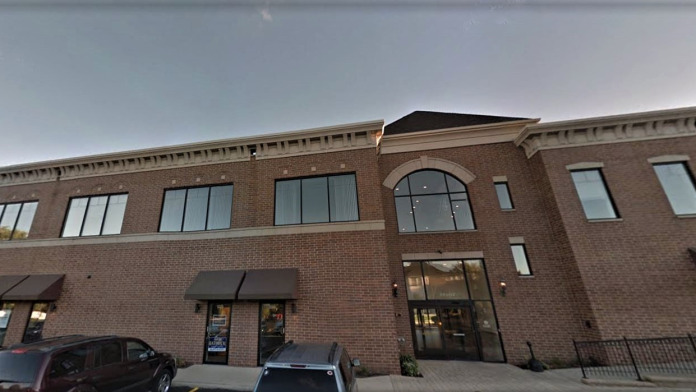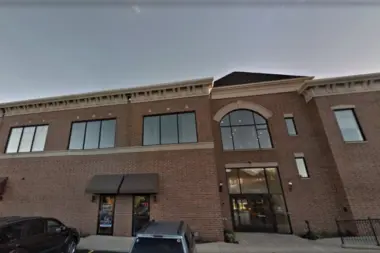About Associates in Professional Counseling
Located in the heart of historic Plainfield, Illinois, Associates in Professional Counseling (APC) offers outpatient therapy for individuals who are experiencing substance use disorders (SUD) and mental health issues like depression or anxiety. They’ve been part of the Chicago-area recovery community for more than 25 years, making them a trusted local resource.
Meet the Team That Walks With You
Care here comes from a close-knit team of more than 15 seasoned therapists, each with years of real experience in hospitals and private practice. They take time to get to know what matters to each client and blend clinical insight with a grounded, spiritual treatment approach.
Addiction Treatment for Adults Over 18
Support is available for all forms of addiction including prescription pain medication and heroin misuse. Your therapists can help you identify triggers and deal with cravings. They don’t have a formal detox program here but they will work alongside medical providers to support the detox process.
Alcohol addiction has unique challenges that often need focused care. A dedicated program helps tackle those specific issues and gives the right kind of support to keep recovery on track.
When Addiction Goes Beyond SUDs
APC also helps with sexual addiction and process addictions like gambling and internet overuse. These addictions often occur alongside SUDs and need to be addressed together. Treating multiple challenges at once can lead to a more complete and lasting recovery.
Support for Teens and Young Adults
For teens, counseling often centers on family challenges and emotional struggles they’re facing. It may also help with substance use, whether it’s their own or someone else’s in the family.
Young adults deal with big life changes including how to navigate independence. Support focuses on mental health while also addressing any substance use that might be part of the picture.
Easy to Reach From the Western Suburbs
Associates in Professional Counseling is easy to get to as it’s just minutes from Route 59 and I-55. There are also several sober-friendly places to spend time outside of counseling hours, including coffee shops like Ten Drops Coffee, which regularly hosts low-key events and live music without alcohol.
Rehab Score
Gallery


Accepted Insurance
Other Forms of Payment
Private insurance refers to any kind of healthcare coverage that isn't from the state or federal government. This includes individual and family plans offered by an employer or purchased from the Insurance Marketplace. Every plan will have different requirements and out of pocket costs so be sure to get the full details before you start treatment.
Self-pay involves paying for treatment out of your own pocket. You can use savings or credit, get a personal loan, or receive help from family and friends to fund your treatment. If you don't have insurance or your insurance plan doesn't cover a specific program, self-pay can help ensure you still get the care you need.
Addiction Treatments
Levels of Care
Outpatient Programs (OP) are for those seeking mental rehab or drug rehab, but who also stay at home every night. The main difference between outpatient treatment (OP) and intensive outpatient treatment (IOP) lies in the amount of hours the patient spends at the facility. Most of the time an outpatient program is designed for someone who has completed an inpatient stay and is looking to continue their growth in recovery. Outpatient is not meant to be the starting point, it is commonly referred to as aftercare.
Intensive Outpatient Programs (IOP) are for those who want or need a very structured treatment program but who also wish to live at home and continue with certain responsibilities (such as work or school). IOP substance abuse treatment programs vary in duration and intensity, and certain outpatient rehab centers will offer individualized treatment programs.
Treatments
The goal of treatment for alcoholism is abstinence. Those with poor social support, poor motivation, or psychiatric disorders tend to relapse within a few years of treatment. For these people, success is measured by longer periods of abstinence, reduced use of alcohol, better health, and improved social functioning. Recovery and Maintenance are usually based on 12 step programs and AA meetings.
Drug rehab in Illinois is designed to help people recover from addiction to a number of substances. The length of each program and its intensity tend to vary, and the plan of care is based on your individual needs.
Opioid rehabs specialize in supporting those recovering from opioid addiction. They treat those suffering from addiction to illegal opioids like heroin, as well as prescription drugs like oxycodone. These centers typically combine both physical as well as mental and emotional support to help stop addiction. Physical support often includes medical detox and subsequent medical support (including medication), and mental support includes in-depth therapy to address the underlying causes of addiction.
Substance rehabs focus on helping individuals recover from substance abuse, including alcohol and drug addiction (both illegal and prescription drugs). They often include the opportunity to engage in both individual as well as group therapy.
Programs
Adult rehab programs include therapies tailored to each client's specific needs, goals, and recovery progress. They are tailored to the specific challenges adult clients may face, including family and work pressures and commitments. From inpatient and residential treatment to various levels of outpatient services, there are many options available. Some facilities also help adults work through co-occurring conditions, like anxiety, that can accompany addiction.
Young adulthood can be an exciting, yet difficult, time of transition. Individuals in their late teens to mid-20s face unique stressors related to school, jobs, families, and social circles, which can lead to a rise in substance use. Rehab centers with dedicated young adult programs will include activities and amenities that cater to this age group, with an emphasis on specialized counseling, peer socialization, and ongoing aftercare.
Clinical Services
Group therapy is any therapeutic work that happens in a group (not one-on-one). There are a number of different group therapy modalities, including support groups, experiential therapy, psycho-education, and more. Group therapy involves treatment as well as processing interaction between group members.
Contact Information
24402 W. Lockport St.
Suite 218
Plainfield, IL 60544

